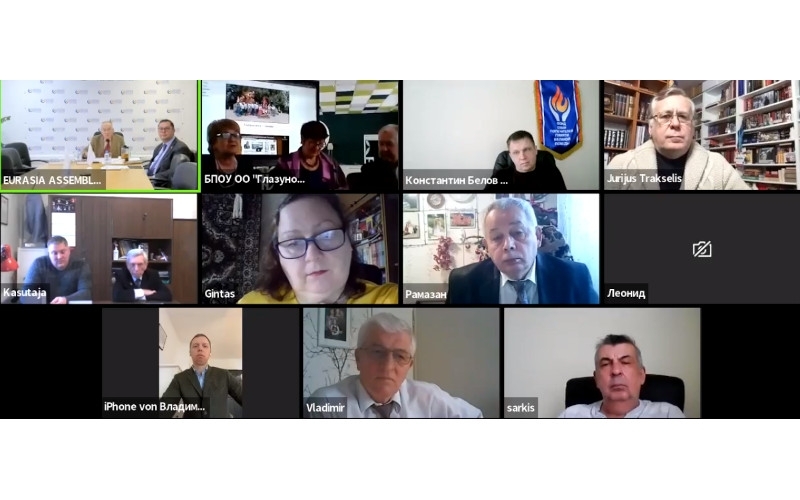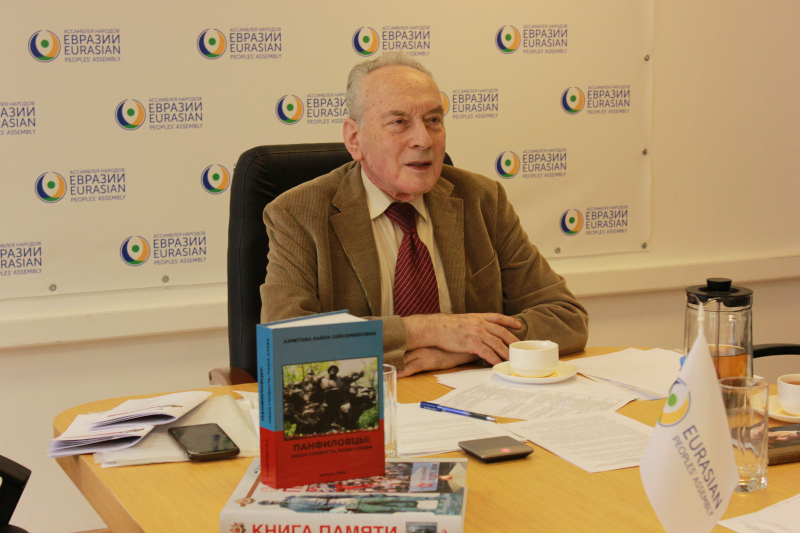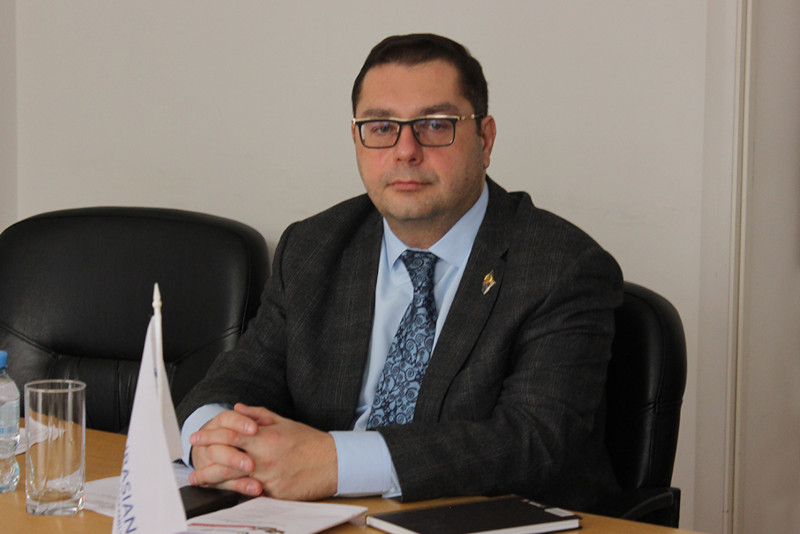
On January 22, the 11th Session of the International Public Forum "Preserving the Memory of World War II and the Great Patriotic War" was held online.
The topic of the forum is "Grateful descendants in memory of the 80th anniversary of the formation of the Estonian military units of the Red Army in the Urals."
Organizers: Eurasian Peoples' Assembly, Eurasian Academy of Television and Radio, Military Heritage Institute (Lithuania).
Representatives of five countries - Russia, Estonia, Lithuania, Latvia and Belarus participated in the forum.
The purpose of the forum is to draw attention to the issues of preserving the historical memory of peoples, supporting the movement against the erosion of value and semantic aspects of history, falsification of the results of World War II and the Great Patriotic War.
The 11th session considered issues of combining the efforts of historians and public organizations in order to preserve the memory of the Estonian military units of the Red Army and develop practices for defending the historical heritage.

In the photo: Valery RUZIN (Russia), Deputy Secretary General of the Eurasian Peoples' Assembly, President of the Eurasian Academy of Television and Radio
Moderators:
- Valery RUZIN (Russia), Deputy Secretary General of the Eurasian Peoples' Assembly, President of the Eurasian Academy of Television and Radio,
- Yurijus TRAKSHELIS (Lithuania), Deputy Secretary General of the Eurasian Peoples' Assembly, Chairman of the public organization "Institute of Military Heritage".
The Secretary General of the Eurasian Peoples' Assembly Andrey BELYANINOV addressed the participants. He noted that a total of about 70 thousand soldiers and officers fought in the Estonian formations of the Red Army, 21 thousand of whom died at the front.
“We are all indebted to these heroes,” - the Secretary General of the Eurasian Peoples’ Assembly addressed the audience. “The Estonian people, like all the peoples of the Soviet Union, have every right and should be proud of the fact that 70,000 sons of Estonia, together with millions of soldiers of other nationalities, won the Great Victory by defeating Nazism.”
Charge d'Affaires of the Russian Federation in Estonia Sergey NALOBIN in his welcoming speech said:
“We have repeatedly said that this is a common Victory for us. We do not divide the commanders and soldiers of the Red Army into Russians and Estonians. The history of the 8th Estonian Rifle Corps and other Estonian military formations of the Red Army show the qualities due to which the victory was won. Then the Estonians, Russians and Ukrainians fought shoulder to shoulder with fascism and won.”
Chairman of the Presidium of the Union of Veteran Organizations of Estonia Nikolai BYSHOK spoke about the events that were held jointly with veterans of the 8th Estonian Rifle Corps in the city of Velikiye Luki in 2016.
Sarkis MATEVOSYAN, representative of the Union of War and Labor Veterans and Russian Compatriots of Kiviõli (Estonia), touched upon the problem of historical blindness towards veterans of the Great Patriotic War common to the Baltic countries.
Vladimir CHUIKIN, a representative of the Coordinating Council of Russian Compatriots in Estonia, spoke about a personal story related to veterans of the Great Patriotic War.
Andrey LAZURIN, ead of the FRONT LINE military-historical association, representative for international relations of the Tallinn Society of World War II Participants, spoke about the history of the formation of the Estonian Rifle Corps.
Historian Vladimir VITAL (Germany) presented a little-known page in the combat history of the Estonian Rifle Corps of the 1st Formation. From June to August 1941, the 1st Formation took part in major operations of the North-Western Front - the defense of Porkhov and Dno station, in the offensive near Soltsy, counterattack and defense of Staraya Russa.
Leonid KUSHNARYOV, Chairman of the Saaremaa Society of War Veterans and Compatriots spoke about the landing operation to liberate the Moonsund Archipelago and preserve the memory of the soldiers-liberators of the island of Saaremaa.
Alexander SHIROKOV, coordinator of the Immortal Regiment in the city of Kallaste (Estonia), told the audience about the crossing of the Emajõgi River. The personal drama of his family is connected with this event.
The chairman of the council of the Public Youth Movement "Youth League of the Pskov Region" Konstantin BELOV addressed an important event of the Great Patriotic War, which became a baptism of fire for the Estonian Rifle Corps - the Velikolukskaya offensive operation.
Ramazan NAZAROV, Chairman of the Board of the Liepaja Society of Military Pensioners, Member of the Board of the Libava Search Center (Latvia), spoke about the latest battles of the 8th Estonian Rifle Corps with the Courland Wehrmacht grouping.

Photo: a well-known expert in the field of Russian-Latvian relations, head of research programs of the Historical Memory Foundation Vladimir SIMINDEY
A well-known expert in Russian-Latvian relations, head of research programs of the Historical Memory Foundation, Vladimir SIMINDEY, spoke about the feat and life of Arnold Meri, who became the first Estonian to be awarded the title of Hero of the Soviet Union.
He drew attention to the issue of digitizing archival documents and developing new formats for interaction with the youth audience.
Irina BABRAUSKENE, Executive Secretary of the Board of Russian Citizens' Organizations in Lithuania, spoke about the problems of preserving historical memory in the Baltic countries and the need to combat revanchist manifestations in modern Western politics.
Dmitry RYBNIKOV, vice-president for international relations of the Daugavpils branch of the Russian community of Latvia, spoke about the alarming trend associated with the loss of Russian-speaking youth living in the Baltic states of their Russian identity.
The forum participants supported the creation of associations of the descendants of the winners following the example of the International Association of Descendants and Friends of the Panfilov Division.


